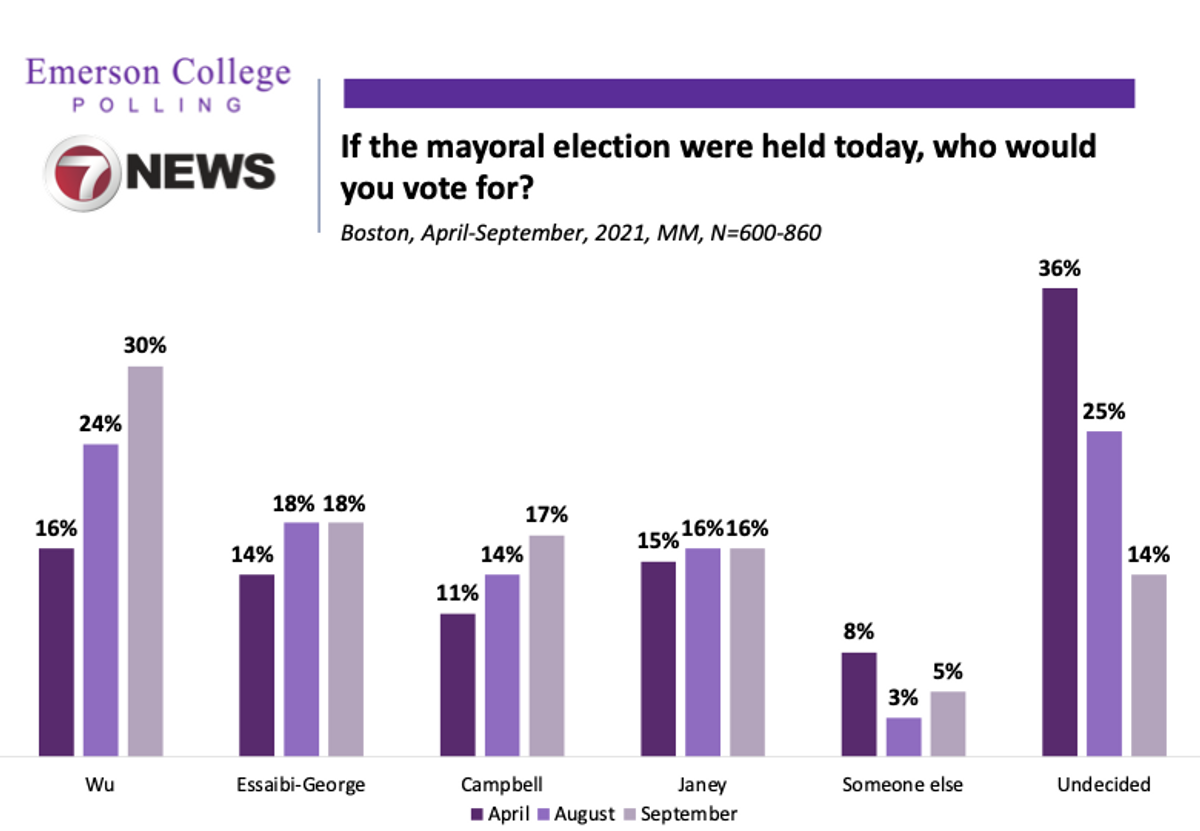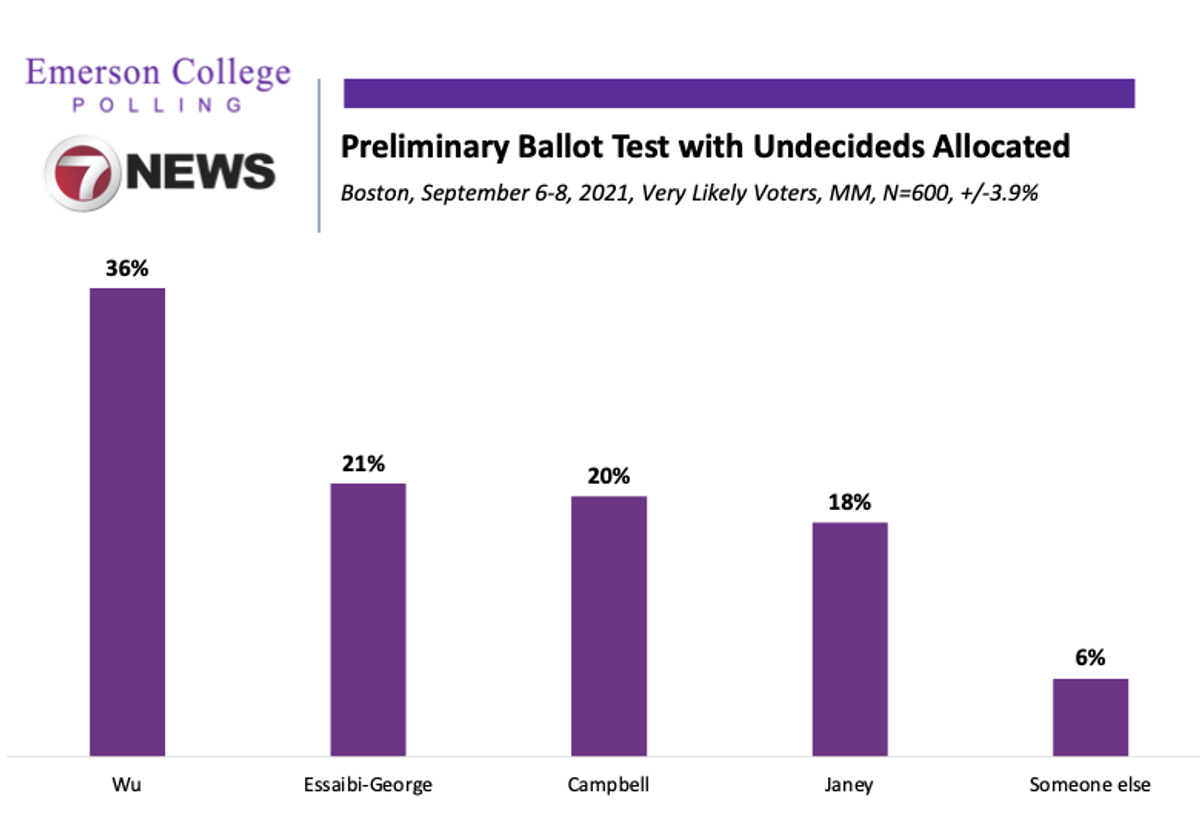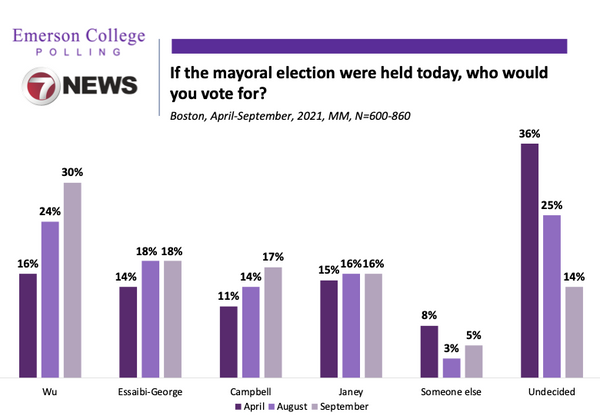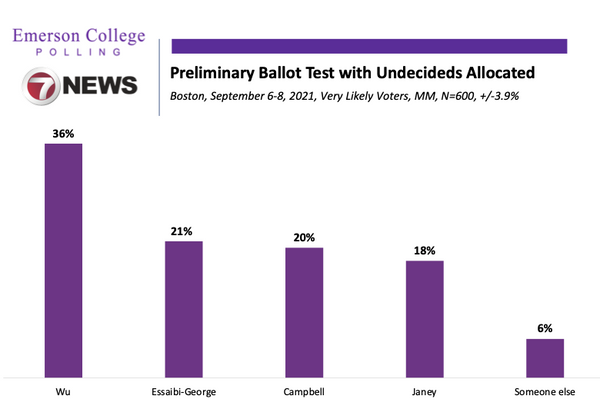With less than one week until the preliminary election for Mayor of Boston, the final Emerson College/7News poll shows City Councilor Michelle Wu leading the field by double-digits, with 30% of the vote. Battling for the second spot in November’s election are City Councilor Annissa Essaibi-George, at 18%, City Councilor Andrea Campbell, at 17%, and acting Mayor Kim Janey, at 16%. All other candidates are at 2% or lower, and 14% of voters are still undecided.

Since the last Emerson/7News poll in August, Wu has gained the most ground, 6%, while Campbell has gained 3% and Essaibi-George and Janey have stayed consistent.
Wu has the majority (58%) of the support of 18-29 year olds, and the plurality (35%) of 30-44 year olds, while 23% of 30-44 year olds support Campbell. Voters aged 45-64 are more split; 28% support Essaibi-George, 22% support Wu, 17% support Campbell, and 14% support Janey. Among those 65 and over, 30% support Janey, 23% support Wu, 14% support Campbell, and 12% support Essaibi-George.
Janey leads among Black voters, with 32%, followed by Campbell (24%), and Wu (15%). Among Hispanic voters, Campbell leads with 23%, followed by Essaibi-George (22%), and Wu (16%). A plurality (37%) of White voters are supporting Wu, followed by Essaibi-George (25%) and Campbell (14%). Wu holds the majority (73%) of support of Asian voters.
When undecided voters were asked which candidate they are leaning towards, 36% indicated they are leaning towards Wu, 20% are leaning towards Campbell, 20% are leaning towards Essaibi-George, and 16% are leaning towards Janey. After allocating these undecided voters, Wu extends to a 15-point lead while the other three candidates gain two to three points: Wu at 36%, Essaibi-George at 21%, Campbell at 20%, and Janey at 18%.

When asked what issue is the most important when deciding which candidate to support for Mayor, housing (21%) and education/schools (21%) were the most common top issues. Other listed issues were Covid-19 (10%), crime (9%), healthcare (8%), the environment (8%), jobs (6%), and transportation (3%), while 10% of voters said something else.
Among those who say housing is the most important issue in deciding their vote for mayor, 36% support Wu, 22% support Janey, and 18% support Campbell. Among those who say education is the most important issue, 32% support Essaibi-George, 25% support Wu, and 17% support Campbell. Wu has the majority (51%) of support of those who say COVID-19 is the most important issue and Essaibi-George has the majority (59%) of support of those who say crime is the most important issue.
Caller ID
The Boston Mayoral poll was conducted September 6-8, 2021. The sample consisted of Boston likely voters, n=600, with a Credibility Interval (CI) similar to a poll’s margin of error (MOE) of +/- 3.9 percentage points. The data sets were weighted by age, gender, education, race, party affiliation, and 2017 vote based on a 2021 turnout model. It is important to remember that subsets based on gender, age, party breakdown, ethnicity, and region carry with them higher margins of error, as the sample size is reduced. Data was collected using a cellphone sample of SMS-to-web, an IVR system of landlines, and an online panel.



